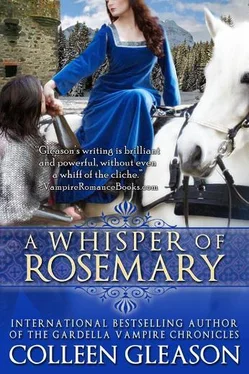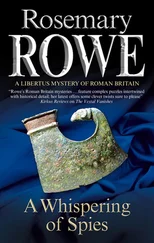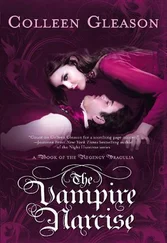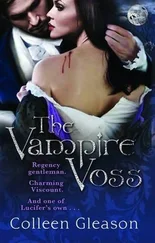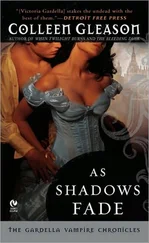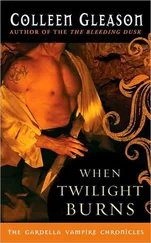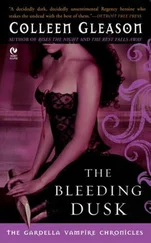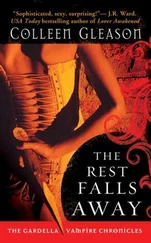While the lady of the manor was certainly beautiful, it was in a soft, almost faded way that was only partly due to her age. Her daughter, however, sparkled not only through her choice of clothing and jewels, but also in her eyes and countenance. She was vibrant whilst her mother was soft-spoken and demure.
Dirick shared a bread trencher with Lady Allegra, and as his mind raced, he occupied his hands by serving her as elegantly as the fine courtier he was. No sooner had she sipped from her wine than he refilled it. Her meat was cut swiftly into bite sized chunks with the knife that he kept at his waist. She had the choicest pieces of bread, the sweetest smelling pieces of fish. And she had charming, lightly flirtatious conversation—something at which Dirick was highly skilled.
He didn’t realize until near halfway through the meal that he’d been holding his breath, waiting to hear the roar of fury from Merle as Maris told him of their encounter. When it didn’t come, he began to relax and enjoy Allegra’s company. Though she didn’t talk much, she asked several questions and giggled like a girl at his jests. Her eyes lit up a bit then, and she ceased looking quite as faded as he’d previously thought.
“’Tis said the king will cross the channel to deal with Geoffrey now that Christ’s Mass has passed,” Merle said to Dirick as one of the pages brought a new platter, this one with stuffed turbot.
Dirick nodded, chewing his bread slowly. While he had to take care what he said—after all, he was newly come from Paris, not from the king’s side at Westminster—much of what they spoke of would only be heard between the four of them. Neither of the ladies would take much from his words, so he needn’t be overly cautious.
“Aye,” he replied. “I hear that Geoffrey is stocking his estates for war—claiming that Old King Henry meant for his son to relinquish Anjou to Geoffrey when he succeeded the throne of England.”
“Matilda is still at Westminster with Henry?” asked Merle.
“Aye. ’Twas she that kept him from heading off to Ireland to conquer the lands for his brother William. With Geoffrey stirring the pot in Anjou, the king has trouble enough across the channel that he doesn’t need to make more war here. The rumors are that the queen’s vassals do not much like him either.”
Merle tsked into his cup of wine as he took a long draught. “The king has his hands full,” he said, wiping his mouth with the back of a hand. “But he is a man who loves his war and action.”
“Aye. And whilst Aquitaine seethes for her mistress, Eleanor, Anjou is about to be gobbled up by Geoffrey.” Dirick wiped his hands on a damp cloth proffered by a page. “And the queen is enceinte once again,” he offered in a low voice.
“Then she will not accompany her husband across the channel?” asked Maris, leaning around her father to look at him.
Dirick started, assuming that his conversation had been between himself and Merle, but he recovered quickly. “Nay, lady. She stays at Westminster—so the rumors say—because of her condition.”
Maris quirked her eyebrow in a most becoming manner. “It might be worthwhile for the king if her majesty visited Aquitaine if ’tis in such an uproar.”
“It’s not so bad as that…and Henry has enough problems with Geoffrey in Anjou. The king will cross the channel and leave Richard of Luci as official administrator of England. But the queen will still be here.”
Maris made a soft sound of comprehension. “The king might appoint Luci officially, yet the queen is certain to hold her own. She will be the one truly in control.”
Dirick almost choked on a chunk of bread, taken by surprise at her grasp of the situation, and her accurate assessment. Women didn’t talk politics—at least, women other than Matilda and Eleanor—and they were queens, for God’s sake. “Aye, my lady, I do believe you are correct. The queen stands back to none but her husband.”
Turning back to Merle, Dirick asked, “How fares the king’s chancellor? ’Tis said he takes the court by storm.”
“Aye, Thomas à Becket is the king’s friend as well as his chancellor. To think that it was the Archbishop who forced Henry to take him on as chancellor…now the two are nearly inseparable,” Merle replied.
“’Tis said the chancellor holds court rather than the king,” Maris interjected. “The king goes to Becket’s court, rather than the chancellor coming to his. Even the diplomats attend Becket, rather than the queen—which I cannot imagine she appreciates.”
“Nay, I would not expect it thus,” Dirick said. He cast a brief glance at his host, wondering whether the man was merely indulgent of his daughter’s vocal tendencies, or whether he encouraged it. And he wondered where Maris got her information—by listening in on such conversations, or from her father.
Or mayhap from whomever she was meeting in the village a night.
All at once, Lady Maris didn’t seem quite as naïve and innocent as one might think.
“Becket dresses in all frippery and serves the most gluttonous meals,” Maris continued. “’Tis said the king even rode his horse into Becket’s hall one evening for dinner!”
She paused to wipe daintily at her mouth, and Dirick’s attention followed her hand as it brushed over a pair of full, pink lips. He found his eyes caught there for a moment and his mouth went dry.
A surprise heat swept over him at the thought of tasting that sensual mouth—despite the fact that it hardly seemed to cease speaking. Tearing his eyes away while focusing on that wry thought, Dirick turned to his trencher and took a long swallow of wine. He had obviously been too long without a woman—a state he would rectify tonight. Until then, he would he would firmly steer his thoughts away from the daughter of his host.
“Maris, do you not carry tales,” Merle was admonishing her good naturedly.
“Aye, Papa,” she conceded with a smile. “Though ’twas only yourself who told me the same story last night.”
Merle chuckled and changed the subject, continuing to speak to his daughter—which gave Dirick a moment to redirect his base thoughts from the lovely woman sitting next to her father. “How fare the cooper’s wife and babes?” Merle asked.
“The woman is a bit weak, for she has lost much blood,” she said. “The babes thrive, and I’ve sent Bernice, the smith’s daughter, to wet nurse for them whilst Thomas’s wife recovers. Her own babe died this se’ennight past, and she was glad to do it.”
“Maris has the gift of healing and she spends much of her time in the village, caring for the people,” Merle explained to their guest.
“The cooper’s wife bore two babes?” Dirick asked, keeping his attention upon her hazel eyes instead of allowing it to drop lower.
“Aye. Both hale and hearty boys, though it was a horrific birthing,” she replied. “She was nearly lost herself and will have a long recovery.”
“You’ve done all you can for the cooper, and with the smith’s daughter to keep the babes, verily the mill will continue to function. I will visit him on the morrow to express my own felicitations,” Merle said as the last platters were cleared from the high table.
Dirick remembered how much it meant for him when his lord showed sympathy for his recent loss, and his admiration for Merle Lareux grew, knowing that he would do the same for a lowly peasant. Then all at once, a great yawn surprised him, nearly cracking his jaw with its violence. Dirick muffled it with a large hand and said, “Pardon, ladies, ’tis not your company which wearies me. I’d a long journey, and the day was even longer.”
“Of course,” Merle agreed. “Maris, will you not show Sir Dirick where the men-at-arms lay their pallets? And any other comforts he may need? Come, Allegra, let us go abovestairs.”
Читать дальше
